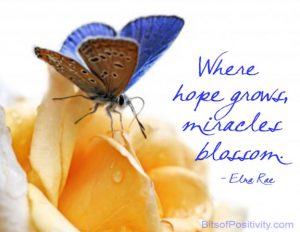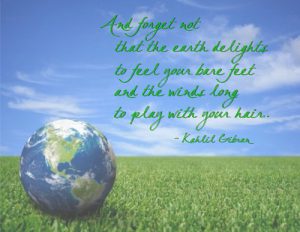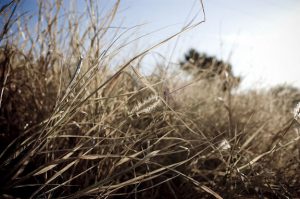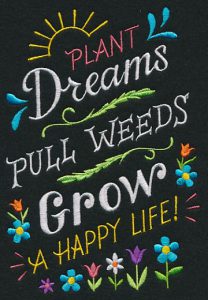When I started writing a recent post about cultural beliefs and archetypes related to aging and health issues, I have to confess that I wasn’t quite sure where it would end up. The plan was simply to visualize my inner Crone, ask her what she’d like to say on the subject, and wing it from there. I was pleasantly surprised when she offered to tell me a story.
Closing my eyes for a moment while I sipped my imaginary coffee, I listened. She began the tale with the traditional “Once upon a time,” and then she went on speaking in a smooth, flowing cadence…
——————————
In a far western desert valley, there lived a girl named Rose. The name suited her well because she climbed all over everything, just like the big pink roses on the trellis outside the kitchen window. She climbed pine trees, getting the sticky sap all over her saddle shoes and poodle skirts; and she climbed the high cliffs on both sides of the valley.
Her favorite spot to climb was the steepest part of the cliff, right next to a little stream that flowed out of the rocks and through her family’s small farm. A smooth ledge, almost all the way up, made the perfect place to sit and watch everything that happened in the valley. Sometimes she would lie down on the ledge and look at the clouds drifting by.
When her parents saw her up there, they scolded her about the danger. Rose had no fear of falling, and she imagined that she would keep on climbing to her favorite ledge forever. But eventually she grew up—as we all must—and her days of climbing cliffs became a distant memory. She spent time with friends, but she never married; and when her parents died, she inherited the farm and lived there alone.
She rarely felt lonely because she had a big shaggy dog, Jack, to keep her company. There were days when she felt unsettled, though, as if she had lost track of something that once had meant a lot to her. On a hot summer day, after going for a long walk with Jack, she came back to the house feeling tired and achy. A hawk passing over the farm made her glance up, toward the ledge on the cliff.
“I am starting to get old,” she said to herself, wondering what had become of the little girl who loved to climb. Had it really been that many years? Wanting to get such thoughts out of her mind, Rose impulsively decided that she might as well just go and climb that cliff right now. After all, there was nobody around to tell her to act her age.
She set off toward the cliff, taking long strides across the rocky ground. Jack happily trailed along, though he didn’t look as cheerful when Rose began to climb. She ignored his whine of concern as she pulled herself upward, searching for the handholds that once had been so familiar. It took a lot of effort. Sweat dripped down her face. The ledge still looked far away. Could this be the same climb that had felt so effortless in her younger days?
Nowhere to go but up, Rose told herself. It can’t really be that hard—after all, people say you’re only as old as you think you are.
The sound of splashing water soothed her as she climbed higher. On her right, the stream that sprang out of the cliff was flowing steadily. She placed a foot carefully to avoid a mossy rock that looked slick, and then she reached for the ledge.
Just as she started to pull herself up with aching arms, Rose lost her grip. The ledge hadn’t been as dry as she thought it was. She tried to catch herself, as she always had been able to do before; but she wasn’t nearly as slim or as limber as she once had been. She tumbled all the way down the cliff, breaking several bones in her feet and ankles.
Slowly, nudged on by Jack, she managed to crawl back to the house and reach a phone to call for help. The doctors at the county hospital patched her up as best they could; but even after they told her the bones had healed, putting weight on her feet was still painful. To get around the farm, she took slow, difficult steps, leaning heavily on a walking stick.
Almost every waking minute—which now included much of the night because her aching feet often kept her awake—Rose berated herself for having been such a fool as to think she could still climb that cliff. She also had a lot of anger toward the doctors, at first because they hadn’t completely fixed everything and, later, because they cut off her pain meds out of concern about addiction. Soon after that, she stopped going to town. It was just too hard, and she didn’t want to see anyone’s pitying faces. In fact, she didn’t want to see anyone—period.
Giving up any hope that she might ever be healthy enough to farm again, Rose leased much of her acreage to the power company for wind turbines. She arranged for her groceries and other supplies to be delivered. If there wasn’t anything perishable, she might leave the boxes on the porch for days. Nothing seemed to matter anymore.
After a while Rose’s old truck rusted out, and brambles grew around it. Weeds filled the yard. A cold snap one winter killed most of the climbing rose on the trellis. Rose didn’t care—she had no interest in looking out the kitchen window because that was the direction of the ledge on the cliff. She kept the curtains drawn and spent most of her days lying on the couch.
Jack, who faithfully kept her company, was by now an old dog. A veterinarian living nearby, whose name was Henry, was kind enough to make house calls. The day came, however, when Jack fell gravely ill, and there was nothing to be done.
When Henry came back with the urn after having Jack’s remains cremated, he also brought—much to Rose’s surprise—a small brown mixed-breed puppy.
“One of my clients was giving away the litter,” he explained in a deep, gruff voice, looking somewhat uncomfortable as he shuffled his big feet on the dusty hardwood floor. “I thought you might want him.”
“Well, you thought wrong,” Rose snapped. “Take him away.”
“Maybe just think about it for a bit, then. I’ve left a bag of puppy food on the porch.” Putting down the puppy, Henry scooted backward and was out the door before Rose realized what he was up to. By the time she struggled up off the couch and got to the door, Henry’s van was roaring away.
Rose’s first impulse was to shout something very nasty after him; but she didn’t want to frighten the puppy, who wasn’t to blame. Instead, she just said, “Oh, for pete’s sake!”
The puppy wagged his little tail happily, in the evident belief that she was talking to him. Rose couldn’t help but to smile at that; and then she told him, “All right, so it looks like we’re stuck here together for now—Petey.”
Although she gave him a name, Rose had every intention of giving him back to Henry at the first opportunity. The last thing she needed, as she saw it, was the nuisance of having a puppy around. She had to take Petey out for walks because he was small enough that he couldn’t be put outside unattended, or he’d be a tasty snack for a hawk or coyote. Leaning on her walking stick, she trudged along painfully on cold winter mornings while Petey, at the end of his leash, gave impatient yips.
As hard as it was, though, she had to admit that by the time Henry finally showed up about a month later, she was doing better. The more she got off the couch and moved around, the easier it seemed. By then, Petey was fairly well housebroken, and she had gotten used to seeing his perky face every day.
“I might keep him,” she allowed grudgingly. “Not making any promises, mind you.”
Henry just grinned.
Winter soon turned into spring, and Rose found that she had enough energy to start cleaning up the house and yard. She whacked weeds, cut back the half-dead rose on the trellis, and got rid of the old truck. Instead of just heating up random food from a can, sometimes she cooked a nice dinner and invited Henry over to eat with her.
Now that she was in better shape, Rose didn’t need to lean on her walking stick like she had before. She still carried it out of habit, though. Her pain, although no longer constant, hadn’t gone away. She still had twinges during the day and bone-deep aches that left her tossing and turning at night, often with her mind troubled by those old angry thoughts.
On a warm evening in midsummer, Rose was throwing a tennis ball for Petey to fetch. He had grown a fair amount but, still, he was a small dog—mostly terrier, she thought. She threw the ball especially far, and Petey dashed eagerly after it. Just then a large coyote bounded over a rise, heading straight for him.
The panicked dog fled toward the nearest cliff and somehow managed to scramble most of the way up. Rose ran toward the coyote, shouting and brandishing her walking stick until it ran away. Shaking in terror, Petey sat huddled on a ledge. It was the same ledge from which Rose had fallen; but, with her thoughts entirely on rescuing her dog, she didn’t even notice that until after she had climbed up. With Petey tucked under her arm, she carefully made her way back down to solid ground.
It wasn’t until Rose got back to the house that she realized she had climbed the cliff without any pain or difficulty. Climbing had felt natural, in fact—just like when she was a young girl. She hadn’t even remembered to pick up her walking stick, which still lay at the base of the cliff where she’d dropped it when the coyote ran off.
Just as soon as those thoughts came into Rose’s mind, the pain came back. But this time, instead of letting herself get overwhelmed by stale feelings of anger and helplessness, she opened the curtains wide and gazed out at a beautiful evening.
Rose sat down at the kitchen table, with a contented Petey wagging his tail at her feet. She sat with the pain until it faded into the last gleams of sunlight on the cliff, the pale blooms of the rosebush, and the stars coming out across the desert sky; and then she went to bed and slept soundly.
——————————
I put down my empty coffee cup and said to the Crone, “Thank you for the story, and for taking the time to visit with me. Both are very much appreciated!”
The Crone rummaged in her handbag for a dark red lipstick and touched up her lips before she answered. “Any time, dear. I’ve quite enjoyed your company.”






